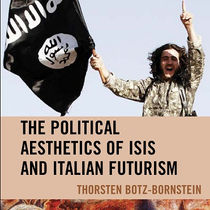
Tracking Global Wokeism
Edited by Thorsten Botz-Bornstein
Forthcoming in May 2025 with Brill
See GUST Newsletter with selected summaries
Do you know “wokismo,” “wūkiyyah,” “pori-kore,” or “shesi”? “Pori-kore” means “Political Correctness” in Japanese and “shesi” is “social death” in Chinese. In this volume, authors ask if wokeness can exist in the non-Western world, if it has been imported from America, or if it can even have vernacular origins.
Wokeness has helped advance the cause of social justice in many domains. However, a cursory search on the internet can yield the impression that ‘woke’ is now predominantly used – similar to Political Correctness – in a negative fashion. Conservatives, when criticizing PC and wokeness, use a pattern that duplicates PC thinking: they imitate leftists by depicting themselves as oppressed and as victims of PC and Wokeism.
Reasonable discussions about woke and PC have become gridlocked. The present book tries to unlock the woke/anti-woke gridlock by doing two things: (1) approaching woke from unusual philosophical angles that do not adhere to either pro or counter positions but that try to transcend purely ideological perspectives; (2) by shifting the debate to an international or global level, especially by asking whether Wokeism also exists in the non-Western world. Is wokeness compatible with existing non-Western social patterns or traditions? Is Wokeism possible in formerly colonized nations? What happens when Islam meets woke? Does Islamic culture generate something like its own kind of wokeness? What shape, if any, does wokeness adopt in Latin America, Africa, or Asia?
Contents
1. Thorsten Botz-Bornstein: Introduction: Woke against Woke?
I. Aspects of Woke Politics
2. Ignacio López-Calvo: The Afterlives of Wokeness and the Limits of Epistemic Colonialism
3. Christopher Mott: Global Woke against Local Progress
4. Carol Burke: The Anti-Woke in America
5. Hans-Georg Moeller: Wokeism: A Global Civil Religion in the “Age of Profilicity?”
6.William Franke: Unsaying Wokeism, or the Role of Self-Critique in Judging Others
7. Alejandro Carpio: Wokeism and Catharism. On Religions that Might Have Existed
8. Jibril Latif: Can we Laugh about It? Based Heroes and Comedic License in the West
9. Tommaso Ostillio: Wokeism and Democracy. A Terrible Mix
10. Zoltán Somhegyi: Curing and Caring Through Art. Memory and Memorials in Times of Changing Interpretations of the Contested Past
II. Global Woke
11. Nesma Elsakaan: Ṣawābiyyah and Wūkiyyah: Tracking Political Correctness and Wokeism in Arabic Language and Muslim-Majority Arab Contexts
12. SimonMary Asese Aihiokhai: Africa’s Contemporary Wokeness as a Summon for Embodying the Common Good
13. Andrea Martinez: The Woke Monroe Doctrine: Pinkwashing the New Iteration of US Interventionism in Mexico
14. Angela M. Gonzalez Echeverry: Tracking Wokeism. The Case of Batallon Ayacucho, Manizales-Colombia
15. Satoshi Narihara and Lee Jiyeon: Cultural, Social, and Legal Perspectives of Wokeism in Japan
16. Chiang Hio Fai: Cancel Culture and Losing Face – Cases in Contemporary China
17. Manuel Rivera Espinoza: “Wokismo” in Latin America: The Decolonial Critique of Identity Politics
18. Ismail Lala: Wokeism and Spiritual Legalism. Ibn ‘Arabi’s Law for the Individual
19. E. Enise Yakar: The Concept of Wokeism in Islamic Legal Philosophy





